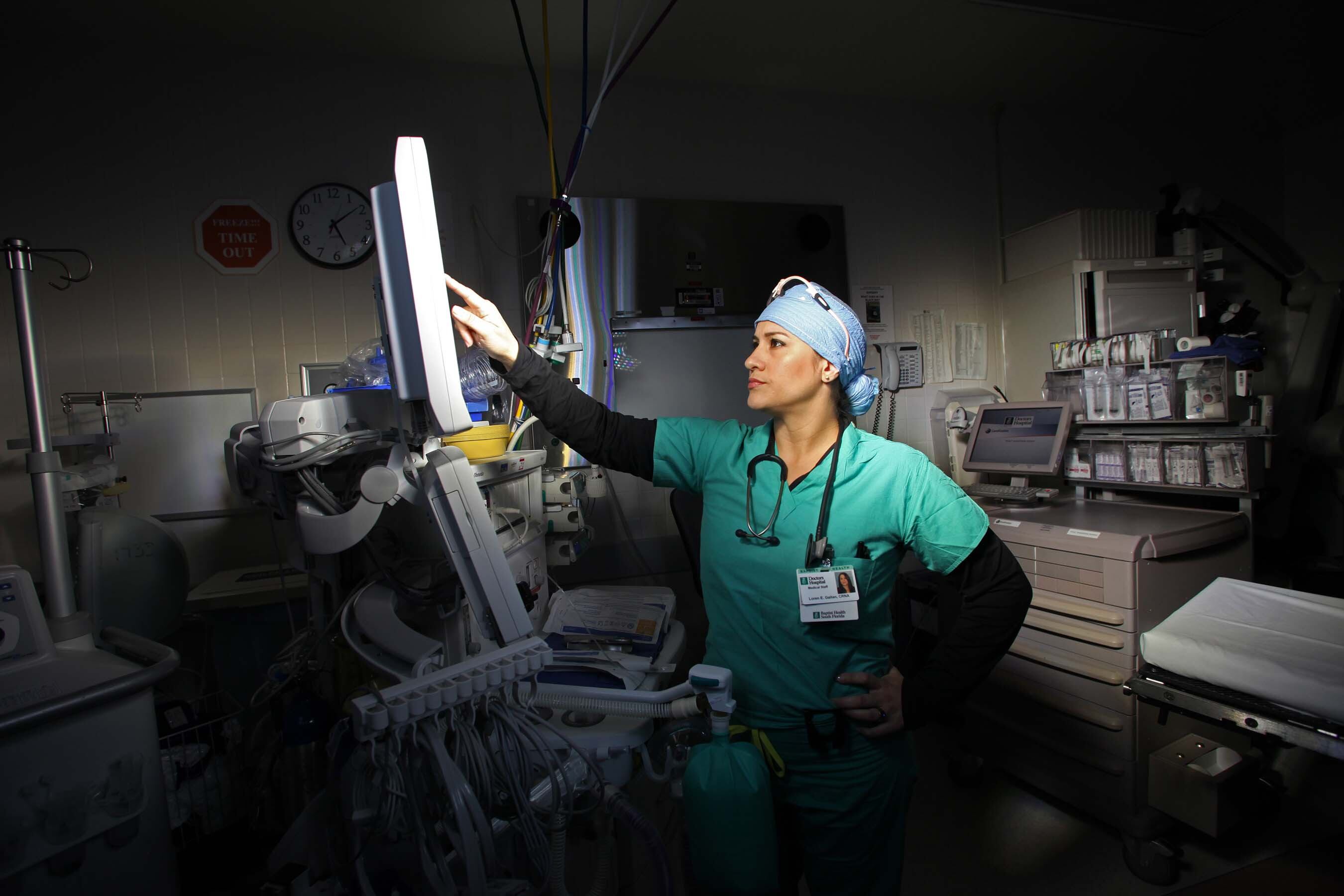Recruiters, employers, earnest spouses: Everyone will eagerly tell you that a military veteran steps into civilian life with a ditty bag full of career skills — camaraderie and communication, professionalism and problem-solving, the ability to perform under stress and, perhaps most importantly, leadership experience.
All these suggest future career success. But in what career? Where do veterans' experiences track most directly to the needs of the job?
We looked at the latest "hot jobs" lists and picked three that speak directly to veterans' skills.
- Franchising: Be your own boss, with backup.
- Health care: Booming, thanks to aging baby boomers.
- Information technology: Growing and growing with no end in sight.
Proven formula
Former Lt. Cmdr. Walt Byars left the Navy this year unsure of what he would do next.
He wanted to fly solo but didn't know how to run a business. He found the answer in Budget Blinds, whose veteran-friendly policies waive a $75,000 entry fee for post-9/11 vets.

Navy veteran Walt Byars is a Budget Blinds franchisee in Louisiana.
Photo Credit: Courtesy of Walt Byars
That sounded good to him. "I knew that any kind of franchise would already have a program that works — somebody has already done it, it's a proven formula," said Byars, whose franchise is based in Baton Rouge, Louisiana.
For this particular franchise, his military experience is proving to be a good fit. "When you do an [installation], it's never perfect, and it comes down to how you interact with people," he said. "As a military officer, I had done a lot of getting up and talking to people. As the ops boss on a frigate, I was the only one on the ship who talked to the NATO staff. The captain trusted me to do that. Not everyone thinks the way Americans do, so it really became about learning how to communicate with people."
All that makes sense to Mike Arsenault, vice president of candidate services at recruiting firm Bradley-Morris. "That military sense of purpose, that sense of having a mission to accomplish ... that's not dissimilar to the mindset that it takes to get a franchise up and running," he said. "You really need that drive, that desire. You need that grit."
Caring career
Daniel Modlin's military experience pushed him toward his present career, but not quite in the usual way.
The West Point graduate left the Army as a captain in April 2015 on medical grounds. That allowed him to get a firsthand, closeup look at the medical establishment on his way out of service, and that sparked his ideas for a future career.
"I experienced the Army health care system and really learned the value of the service that doctors and nurses provide," he said. "So I was looking for a line of work that aligned with that same mission: The idea that at the end of the day we were really trying to help people."
In July, he signed on with Kaiser Permanente through its Junior Military Officer program. This transitional program brings high-performing officers into the firm, which provides health care and insurance to some 10.1 million members.
Resource: The federal Bureau of Labor Statistics lets you easily browse and sort health care occupations to compare growth and income.
While Modlin isn't sure what role he will take on in the health care system, he is certain about his choice of career field.
"When I was in Afghanistan. I saw my fair share of combat, but the scariest point in my life was when I was about to have surgery on my back," he said. "In Afghanistan, I felt like I could always fight back. When I was getting ready to have surgery, I felt completely vulnerable.
"But there's a mission within health care that is all about helping people, and that is fundamentally what the military does as well."

Along with compassion, many service members come to the field with tangible skills.
Photo Credit: Eliot J. Schechter for Military Times
Along with compassion, many come to the field with tangible skills. "There are certain jobs that translate exactly for someone from the military: An avionics technician for rotary wing helicopters might go on to maintain these same aircraft," Arsenault said. "But we see them in health care, too. A lot of hospitals and health care facilities have high-tech machinery that needs to be maintained and upgraded, and a lot of those same skills will be needed there."
Technology tools
Former Marine Sgt. Tyler Gallenbeck, 26, left service in 2012 with a tool he didn't even know he had.
In the course of his work in ground supply, Gallenbeck got posted to Field Supply and Maintenance Analysis Office East, where he got certified in Lean Six Sigma. "When I got out of the military, I didn't know how marketable that was," he said. "Turns out it is really marketable."
That certification, which teaches people how to organize business processes, helped him land a job as an IT security analyst with staffing agency Robert Half in San Ramon, California.
This brings us to information technology, the 800 -pound gorilla in the career-search room. Whatever industry a former soldier may seek out, whatever enterprise a former sailor might land in, there will almost surely be an IT help desk in the background keeping all the pieces humming smoothly, a programmer or a network operator making the wheels turn.
Stanford University's Peninsula Press estimates that cybersecurity jobs alone account for 209,000 unfilled positions in the U.S., and that's just one sector within IT. The Labor Department predicts there will be some 222,600 new software developer jobs created between 2012 and 2022.
Industry leaders say former military people can often slide right into those spots.
Resource: BLS also tracks IT occupations as well as many others.
In the military, as in IT, "you have people who like to do things and make things happen — they have that discipline about them, but they also know how to think on their feet," said James Stanger, senior director of product at the international IT trade association CompTIA.
The fast pace of life in the field is mirrored by the pace of change in the IT realm. "In the world of technology, as a business changes its focus, the IT infrastructure has to mold itself to that change. On the turn of a day or an hour, they have to make their company's IT infrastructure map to a business change," Stanger said.
That's something the military knows how to do. What's more, veterans understand how to ask "why," a question not always on the lips of IT experts.
"The average person who knows IT often doesn't understand why certain things are the way they are. All they see is the technology," Stanger said. "In the military, they can see the task that needs to be done, and then look at how the IT fits in, rather than just looking at it as IT for IT's sake."
That big-picture thinking is a major asset to veterans on the job, as is the ability to focus and the desire to be of service. While these three careers give a good idea of how one might connect the dots, plenty of other career choices are out there that might fit the veteran's temperament and skills.





